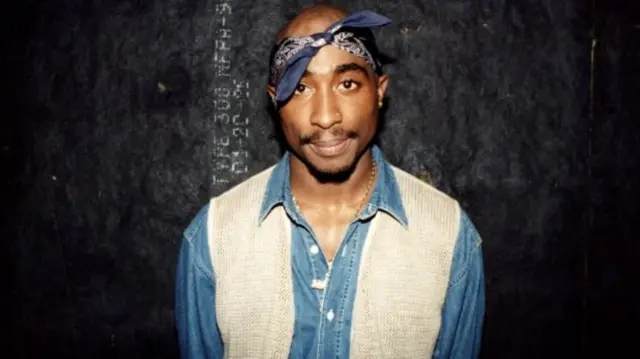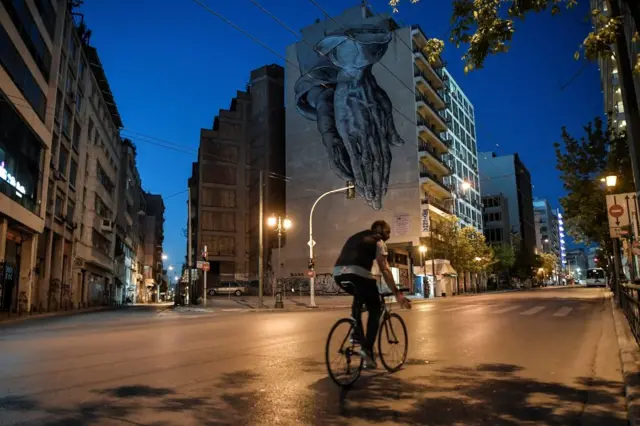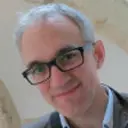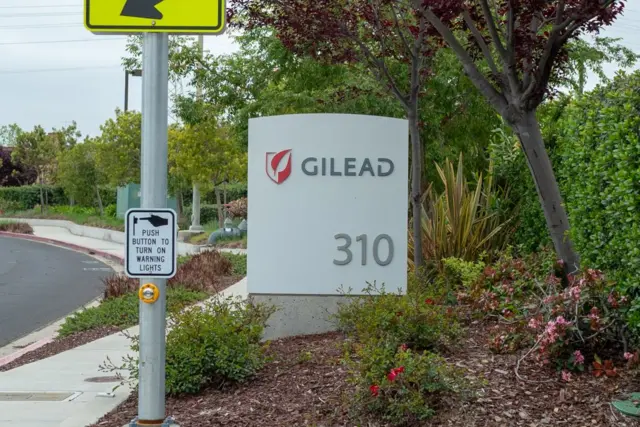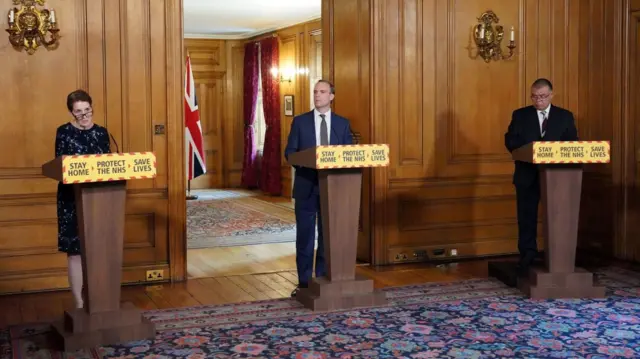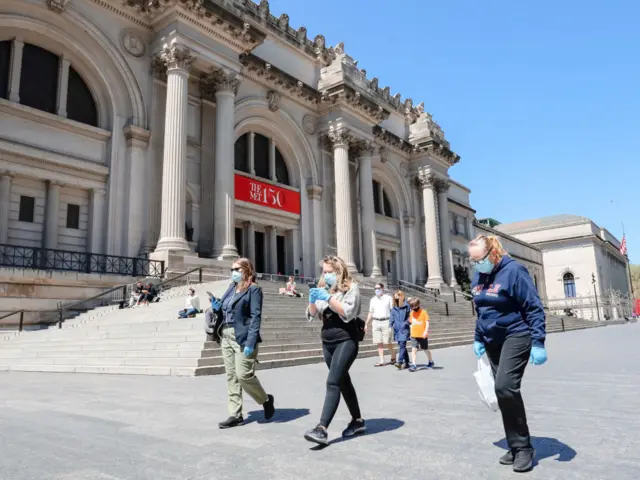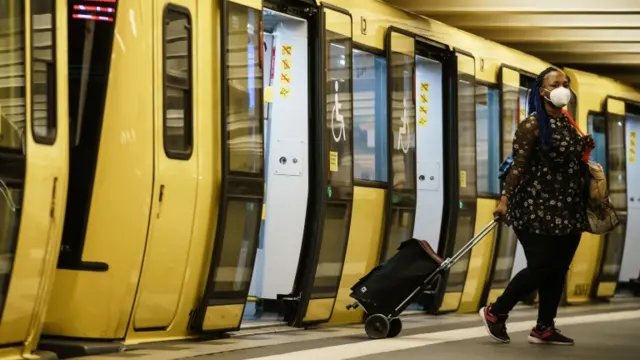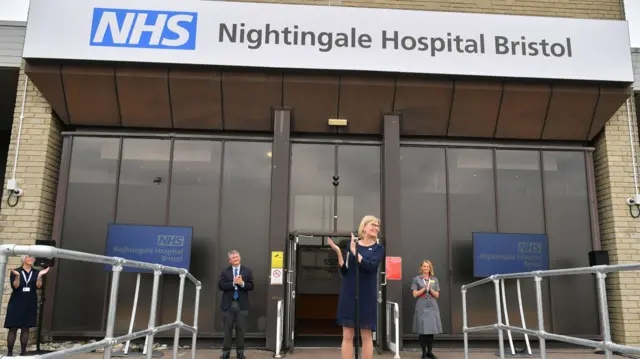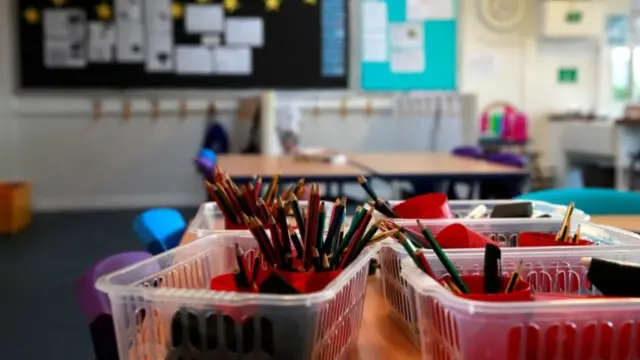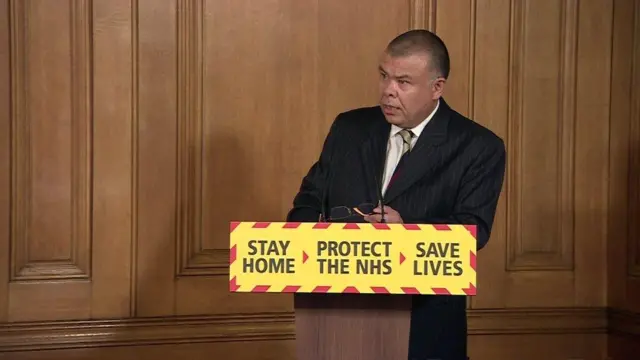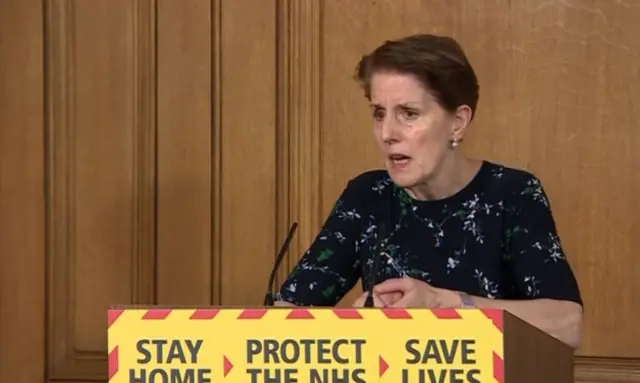New York Mayor apologises after speaking out against Jewish funeralpublished at 19:21 BST 29 April 2020
New York Mayor Bill de Blasio has apologised after a series of tweets castigating the "absolutely unacceptable" funeral gathering for a Jewish rabbi in the city's Williamsburg neighbourhood.
De Blasio personally oversaw the break-up of the Hasidic Jewish funeral on Tuesday night before taking to Twitter. Images on social media appeared show hundreds of mourners gathering for the funeral of Rabbi Chaim Mertz.
"What I saw WILL NOT be tolerated so long as we are fighting the Coronavirus," he wrote. "My message to the Jewish communities, and all communities, is this simple: the time for warnings has passed."
Jewish leaders in New York quickly criticised de Blasio for appearing to target a single religious community.
"Did the Mayor of NYC really just single out one specific ethnic community (a community that has been the target of increasing hate crimes in HIS city) as being noncompliant??" wrote city councillor Chaim Deutsch, who represents a predominantly Jewish constituency, on Twitter.
On Wednesday, de Blasio apologised, saying his intention was not to be "hurtful", but added that he had "no regrets about calling out this danger".
Allow X content?
This article contains content provided by X. We ask for your permission before anything is loaded, as they may be using cookies and other technologies. You may want to read X’s cookie policy, external and privacy policy, external before accepting. To view this content choose ‘accept and continue’.
